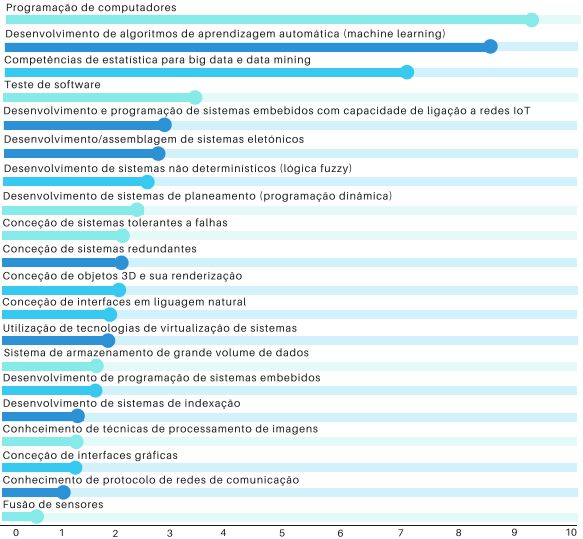The Digital transformation is not just about implementing new technologies. Digital tools are one of the edges of this transformation that must be accompanied by a digital mentality of the people who use these technologies on a daily basis. When we talk about digital competences, we mean the ability to use technological knowledge and competences to optimize processes and make them increasingly efficient.
In order for technological changes to be success-fully implemented in a region, socially responsible restructuring is necessary. Recycling of workers, competences and continuing professional education are some of the most important aspects of this restructuring. Limitations in competences may negatively affect labour productivity and hamper the ability to innovate and adopt technological innovations. In addition, lack of appropriate competences may also limit the prospects for employability and access to quality jobs.
In this sense, the Labour Observatory has an important role in the restructuring of the labour market in the Aveiro region. Through inter-views, questionnaires and workshops, together with companies and local actors, makes the diagnosis with the identification and prioritization of qualification needs, hinders the users' experience and limits the market potential for digital businesses.
The planned activities include listening to different business sectors, including TICE (Information, Communication and Electronic Technology), Industry and Tourism, for which there may be different priorities for qualification to be developed in the context of the project.
The identification of qualification priorities will lead, within the project, to the development and offer of several training programmes, to be implemented later this year, aimed at companies in Aveiro.
The technical competences pointed out as more needed for the sustainability of the digital transformation of the ITCE sector, in the Aveiro region, were: Computer programming, Development of automated learning algorithms, Statistics for big data and data mining, Soft-ware testing and development and programming of embedded systems with IoT.
Figure 1 - Most needed technical competences ITCE sector.

The results for the region are in line with global trends, where the role of data collection and data processing is increasingly relevant. In order to obtain increasingly assertive data for the company, in addition to investment in data analysis, it is necessary to find machine learning and AI (artificial intelligence) solutions. Thus, the existence of complex data at the service of companies requires that they be analyzed in a fraction of the time that a human being would need, for which machine learning and AI algorithms are presented as extremely efficient.
All rights reserved © Aveiro Tech City / Câmara Municipal de Aveiro